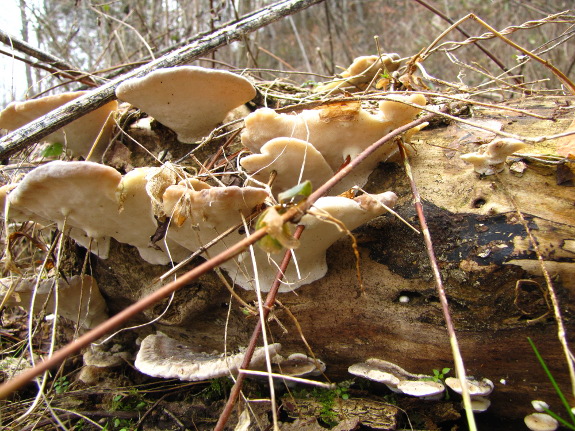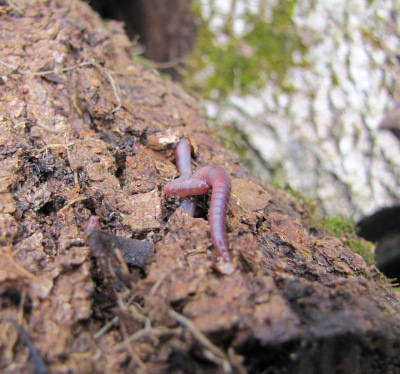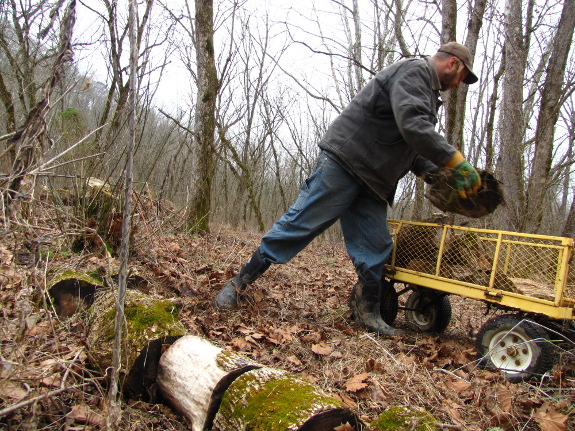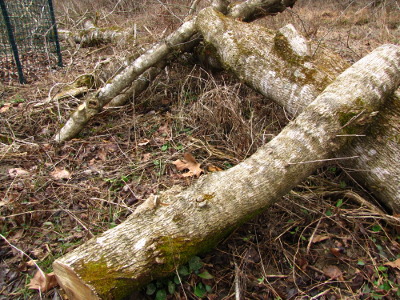
How long does old firewood last?

We've never cut down a
tree on our property specifically for firewood, but we do end up
cutting down a lot of trees as we make mushroom
logs and clear land
for cultivated crops. In a perfect world, we'd saw the excess
into stove-lengths immediately and haul it up to the wood shed, but in
the real world, something more pressing is usually on the agenda.
 Slowly
but surely, we're learning how long we can ignore the downed trees
before they're no longer firewood and have become fodder for the hugelkultur mounds. Type of wood is the
first factor --- softwoods like our ubiquitous box-elder may start to
rot within a few months of being cut while hardwoods last much longer.
Slowly
but surely, we're learning how long we can ignore the downed trees
before they're no longer firewood and have become fodder for the hugelkultur mounds. Type of wood is the
first factor --- softwoods like our ubiquitous box-elder may start to
rot within a few months of being cut while hardwoods last much longer.
Three years ago, Mark
cut down a bunch of trees to clear ground for a blueberry patch.
The photo at the top of this post shows what the box-elder logs look
like --- once your "firewood" is sprouting mushrooms, there's no point
in throwing it in the stove. (Worms in the bark aren't a good
sign, but aren't a deal breaker either.) On the other hand, a walnut tree with approximately the same
dimensions, cut at the same time, shows no signs of rot three years
later.

The second factor is
whether the cut trees are lying on the ground. In our damp
climate, the earth never really gets dry, so a log that touches the
soil for its whole length never gets dry either. The box-elder
logs Mark's handling in the photo above were already starting to rot
even though they'd been cut from a living tree just nine months ago.
 We
got smart with the box-elder we cut recently, leaning log sections up
against the fallen trunk --- those should stay relatively rot-free
until the driveway is passable by truck. Similarly, the limbs of
the walnut we cut yesterday are much drier than the main trunk since
they were raised off the ground.
We
got smart with the box-elder we cut recently, leaning log sections up
against the fallen trunk --- those should stay relatively rot-free
until the driveway is passable by truck. Similarly, the limbs of
the walnut we cut yesterday are much drier than the main trunk since
they were raised off the ground.
Of course, this whole
discussion assumes you put off care of your firewood until later.
If you cut fresh wood right away and store it in a dry, airy wood shed,
the wood will last indefinitely. In fact, like wine and hard
cheese, firewood under cover only gets better with age.
Want more in-depth information? Browse through our books.
Or explore more posts by date or by subject.
About us: Anna Hess and Mark Hamilton spent over a decade living self-sufficiently in the mountains of Virginia before moving north to start over from scratch in the foothills of Ohio. They've experimented with permaculture, no-till gardening, trailersteading, home-based microbusinesses and much more, writing about their adventures in both blogs and books.
Want to be notified when new comments are posted on this page? Click on the RSS button after you add a comment to subscribe to the comment feed, or simply check the box beside "email replies to me" while writing your comment.
